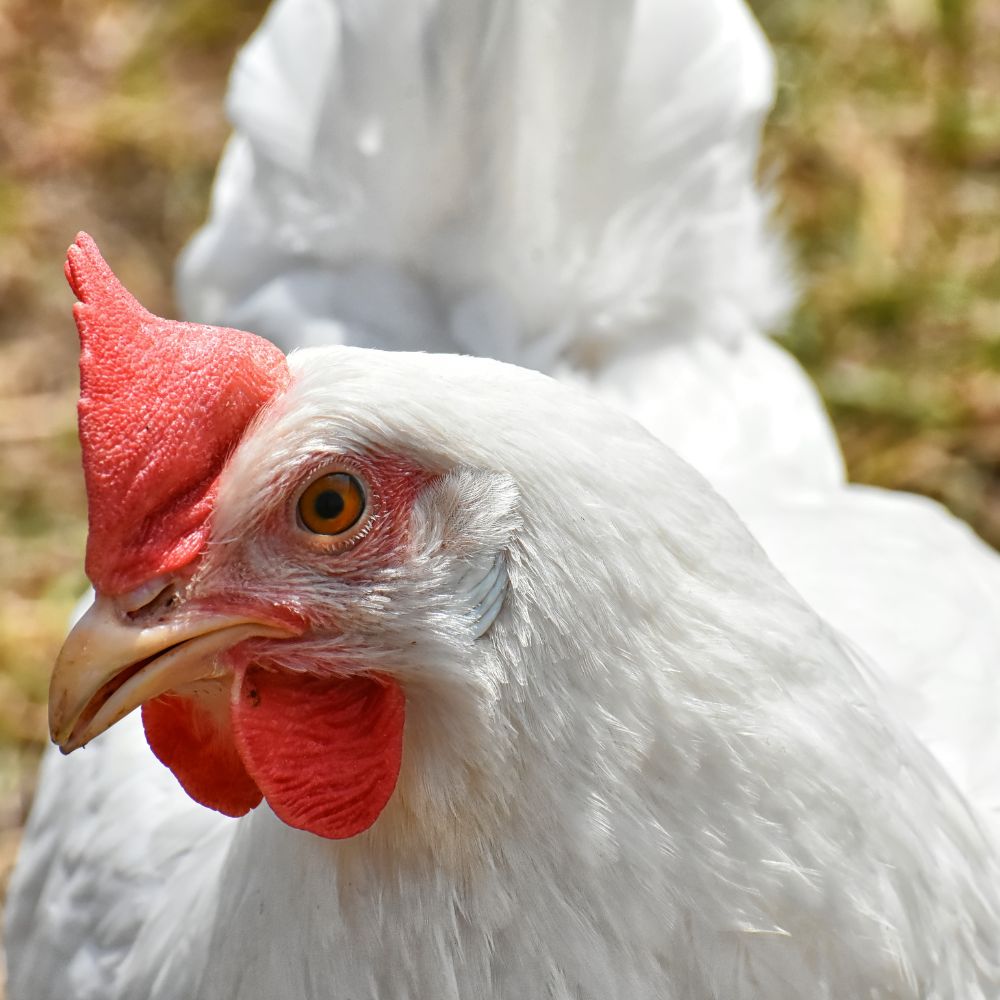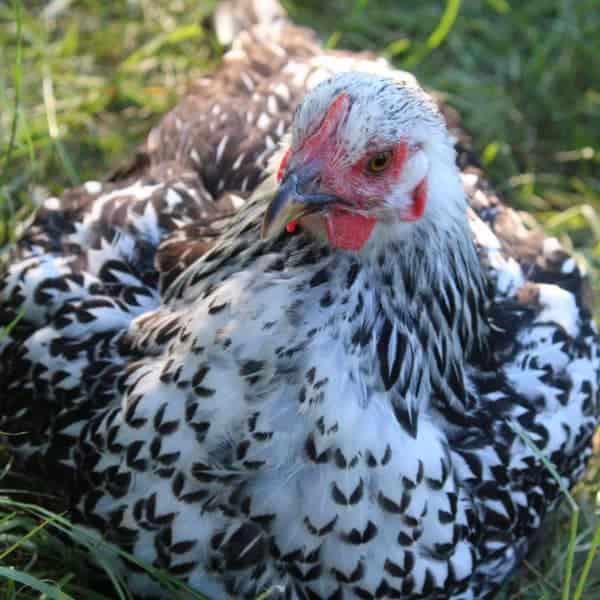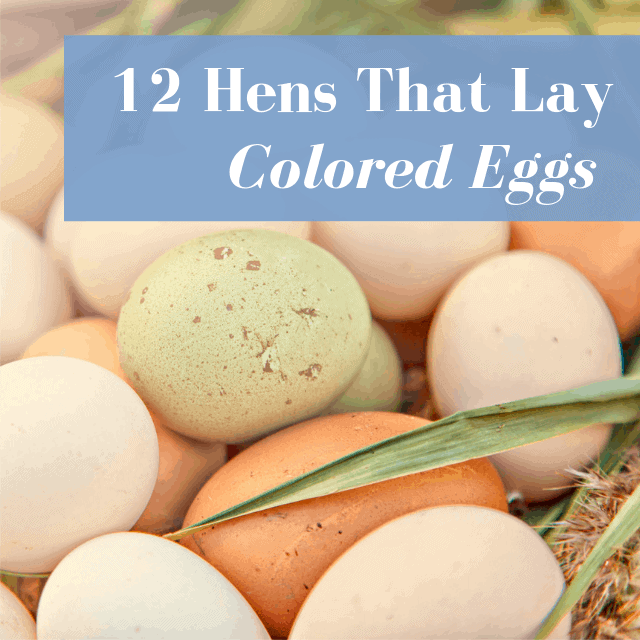When it comes to owning chickens, there’s a lot to love – the clucking of happy hens, the excitement of collecting freshly laid eggs, and the satisfaction of watching your flock work hard around your yard. However, amidst the joys of poultry keeping, there’s one aspect that can be quite unwelcome – chicken parasites.
These tiny critters can hitch a ride on your feathered friends and wreak havoc in your flock. But don’t worry, we’ve got you covered! In this article, we’ll take a closer look at these uninvited guests, from their sneaky ways to their pesky effects, and we’ll share some effective strategies to keep them from crashing your poultry party!

Table of Contents (Quickly Jump To Information)
Types of Chicken Parasites
Just like uninvited guests at a party, chicken parasites come in different forms, and each has its own nuances. Here are some of the most common types of poultry parasites:
- Mite Mayhem – These tiny arthropods are like party crashers that sneak in and make themselves at home in your flock’s feathers. They can cause intense itching, feather loss, and skin lesions, leaving your birds feeling uncomfortable and stressed.
- Lice Lurkers – These little insects are the freeloaders of the poultry world, feeding on your birds’ blood and causing feather damage, skin irritation, and reduced egg production. They can spread easily from bird to bird, making them unwelcome guests that can quickly overstay their welcome.
- Worm Woes – Internal parasites, such as worms, can be party poopers, causing all kinds of trouble in your birds’ digestive tracts. They can cause poor growth, weight loss, and even death in severe cases. These creepy crawlies can really put a damper on your flock’s health and productivity. Some common chicken worms are roundworms, tapeworms, cecal worms, and threadworms.
- Crafty Coccidia – These microscopic parasites are like the sneaky spies of the poultry world, invading your birds’ intestines and causing coccidiosis. This disease can lead to diarrhea and poor growth, leaving your flock feeling under the weather. It can even cause mortality (especially in young birds).
Excellent In Depth Resources for Chicken Parasites
If you want to dig in deeper and learn all the scientific details about chicken parasites, we have a plan for you. Click on the links below to find trusted resources on the subject at hand.
Symptoms of Parasite Infestations
Chicken parasite infestations, be they internal or external parasites, can have noticeable effects on your flock. Here are some symptoms to watch out for:
- Feather Fiasco – If you notice feather loss, scabs, or skin lesions on your birds, it could be a sign of mite or lice infestation. Your birds may be seen scratching or pecking at themselves in discomfort, which can be a real problem for their well-being.
- Egg Laying Blues – Reduced egg production can be a red flag for lice or mite infestations (or any parasites overload). These parasites can stress out your birds, affecting their reproductive health and putting a damper on your egg production goals.
- Growth Stalling – If your birds are not growing as expected or showing signs of weight loss, it could be a sign of internal parasites, such as worms. These unwelcome guests can steal the nutrients from your birds’ digestive tracts, leaving them feeling weak and unproductive.
- Diarrhea Drama – Diarrhea in your birds can be a sign of coccidiosis, caused by the coccidia parasites. This can lead to dehydration, nutrient loss, and weakness in your birds, making them feel under the weather, among other things. You can often tell that they are suffering because they might have pale combs (from anemia) and be standing in a corner all alone.
Strategies to Keep Chicken Parasites Away
Keeping your feathered friends free from pesky parasites is a top priority for any chicken lover. After all, who wants uninvited guests crashing their chicken coop? But fear not, with a little elbow grease and some specific strategies, you can prevent parasites from getting out of control.
Be a Clean Machine
Let’s face it, chickens bring a lot of joy, but they aren’t saints – they also love to make a mess. That’s why regular cleaning and disinfection are essential to keep parasites at bay. Roll up your sleeves, grab a broom, and make cleaning your coop a regular routine.
Clear out any litter, old straw, or spilled feed that could attract pests. Scrub your coop, roosts, and nesting boxes to make sure they’re squeaky clean. Be sure to clean all the cracks and crevices where creepy crawlies like to find refuge. Add some fun to your cleaning routine with a funky dance party or a catchy cleaning jingle!
To put a cherry on top, use some Cleanest Coop Ever! Coop Refresher – you’ll thank me later.
Feather Inspections
Your chickens’ feathers are not just for looks, they can also reveal a lot about their health. Make feather inspections a regular part of your chicken care routine. Part their feathers and take a close look for any creepy crawlies or irritated skin. Be sure to check their legs, especially breeds with feathered legs and feet, for scaly leg mites.
If you spot any unwelcome guests, it’s time to show them the door with appropriate treatments like dust baths or nesting herbs. In severe cases you will need to decide whether or not to go to the next level and buy some medication to treat your friends.
Vent Health
It sounds gross and it is, but you need to regularly check the vents on your backyard buddies. Poo stuck to the vent area is a huge sign that you may have a parasite problem. Sometimes you can see actual parasites invading the vent area as well.
I won’t belabor this topic, but I will say – the vent is a telltale area that you don’t want to ignore.
Win the Worm War
Internal parasites can be a real problem for your birds’ health. But fear not, you can wage a worm war and keep those nasty parasites slithering away. Consult with your veterinarian, or a fellow chicken owner, or do ample research to develop a deworming strategy suitable for your flock.
Some folks prefer to use all-natural methods, and others like to use medical dewormers. It’s something you have to decide for your flock.
Meal Planning
A healthy diet is the foundation of good health, and it’s no different for your feathered friends. Provide a balanced and nutritious diet for your birds to keep their immune system in tip-top shape. First things first, they need a high-quality, high-protein chicken feed (and I don’t recommend skimping on this one as it is their main source of health).
Offer a variety of treats like herbs, fruits, and vegetables that are known for their anti-parasitic properties. Feed your flock special treats that boost their immune system and overall health. Your birds will gobble them up and love you all the more. You can find some amazing treats for you ladies and gents right here!
Prevention is Key
Prevention is the key to avoiding parasite party crashers. If you can keep them away, or at the very least – invade their life cycle – then you can be one step ahead of their family plan.
Consider using preventive measures like insect-repelling bedding, nesting herbs, or probiotics in your birds’ diet. It might be worth putting any new birds you add to your coop into quarantine to ensure they are pest free before integrating them.
These methods can help create a parasite-free zone in your coop and keep your birds healthy and happy.
Summary
In conclusion, keeping your chickens parasite-free doesn’t have to be overwhelming. With a little work and focused strategies, you can succeed …99.9% guaranteed! So, put on your work boots and party dress and do what you have to do!

A happy wife, mother, teacher, writer, hobby farmer, lover of chickens, and contributor to Pampered Chicken Mama!




![Incubator Chickens, Chickens & Turkeys, And Nesting Box Drama [Podcast]](https://thefrugalchicken.com/wp-content/uploads/2016/02/incubator-chickens-feature.jpg)

